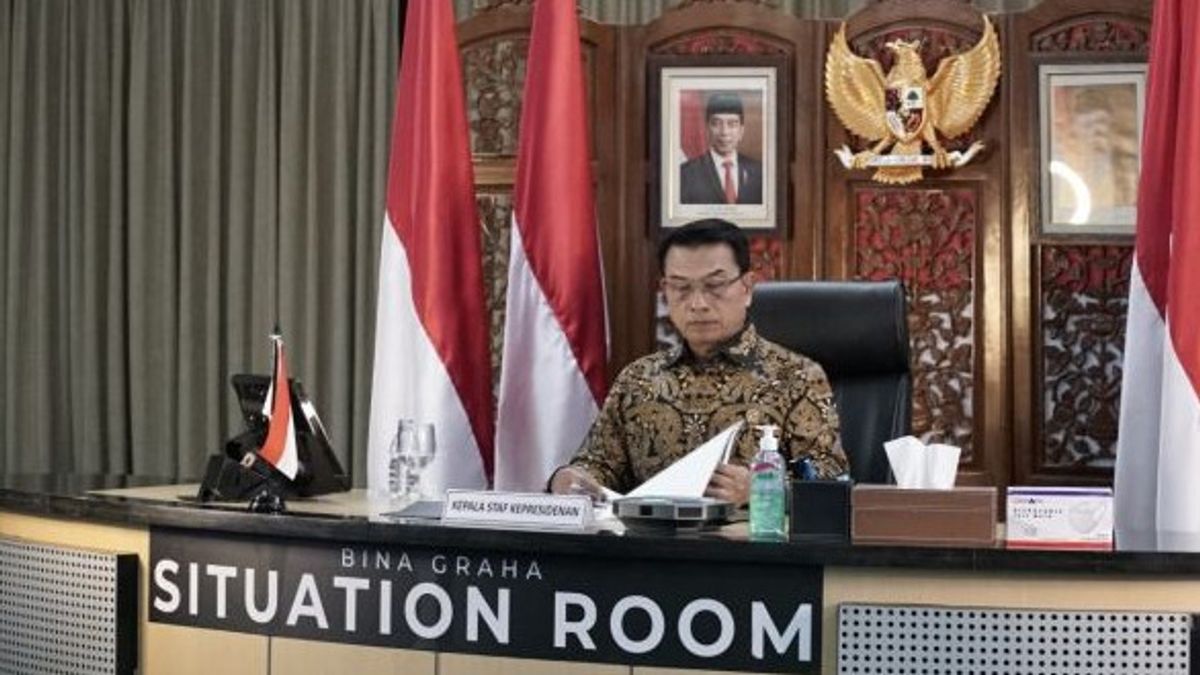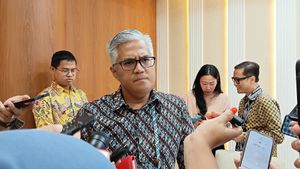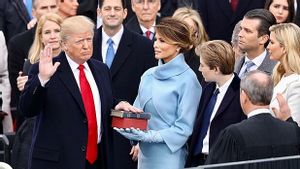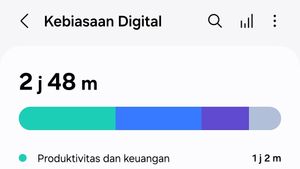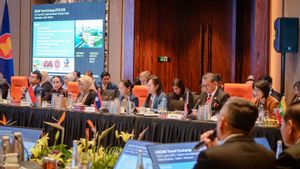JAKARTA - The Presidential Chief of Staff (KSP) Moeldoko explained the reason for the government to issue a budget for handling COVID-19 on the health side with a nominal value that is not bigger than the other side.
The total budget disbursed by the government to tackle the impact of COVID-19 from 4 sides was IDR 695.2 trillion.
In details, the handling on the health side is Rp.87.5 trillion, the social side is in the form of a safety net (social assistance) of Rp.203.9 trillion, the economic side is Rp.226.72 trillion, and the financial side, such as MSME and corporate financing, is Rp.168.3 trillion.
Although the budget for handling COVID-19 from a health perspective is no bigger, this is still a top priority.
"The main priority is the health side of dealing with COVID-19. However, these three other sides cannot be abandoned because they have to go hand in hand. So, it is not true that the government prioritizes the economic aspect," said Moeldoko during a webinar discussion, Tuesday, June 23.
Moeldoko continued, there are three main objectives of the government which are the basis for handling COVID-19. First, people must be safe from COVID-19. Second, people must be able to keep eating well. On that basis, the government provides a policy of expanding social assistance.
Third, the government wants entrepreneurs, both MSME and corporate level workers to continue their business activities by suppressing layoffs.
"There are a number of government programs to reduce layoffs, such as incentives for MSMEs that absorb more than 90 percent of the workforce, namely tax incentives, credit restructuring, new working capital loans, interest subsidies, and credit guarantees," said Moeldoko.
Furthermore, Moeldoko said that President Joko Widodo (Jokowi) gave five directions in evaluating the COVID-19 response policy carried out by the Task Force for the Acceleration of Handling COVID-19.
First, the need for preconditions and socialization of health protocols as well as possible so that the community remains disciplined. "For example, wearing a mask, washing hands, keeping your distance, and as much as possible not to be in a crowd," he said.
Second, determining the timing of determining policies accompanied by accurate data. Regions that will relax towards the new normality should pay attention to timing issues properly.
"Loosening is not carried out haphazardly, it must be supported by accurate data. What is the epidemiological problem, how to monitor disease progression, how to prepare regional health facilities and infrastructure if they are fulfilled or not," he explained.
Third, determine sector priorities. Adaptation period policies must be determined from areas with the lowest health risks. Then, policies also prioritize high economic impacts.
"So, in the green zone area, it must be a top priority, also from the economic point of view it is the sectors that have high economic value that are the priorities," he explained.
Fourth, the determination of the regions towards the new normality must be well coordinated between the central and regional governments. That way, policies that are decided together will not cause contradictions on the ground.
Fifth, always evaluate policies on a regular basis from time to time. "So, the policies that are implemented can be well measured, and progress can be seen from time to time," he concluded.
The English, Chinese, Japanese, Arabic, and French versions are automatically generated by the AI. So there may still be inaccuracies in translating, please always see Indonesian as our main language. (system supported by DigitalSiber.id)
